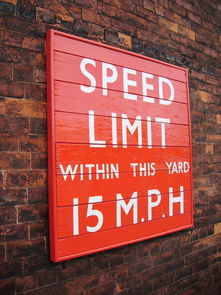In today's fast-paced world, where people are constantly seeking new forms of entertainment, dice games have become a popular pastime in many cultures. Vietnam is no exception to this trend, with its own unique collection of dice games that are deeply rooted in tradition and folklore. These games not only serve as a form of entertainment but also offer insights into the cultural values and social dynamics of Vietnamese society.
Vietnamese dice games, or "xúc xắc" (pronounced sook-sak) in Vietnamese, encompass a variety of activities, from simple, lighthearted fun to more complex strategy-based competitions. The most common type of dice game in Vietnam involves shaking a cup or box containing dice and trying to guess the outcome after lifting the cup. This seemingly straightforward concept is filled with variations, each with its unique set of rules and strategies.
One such game is called "Bầu Cua Cá Cóc" (translated as Crab-Frog-Fish-Deer Game), which dates back to the 19th century. The game consists of a circle divided into six equal parts, with pictures of a crab, a fish, a shrimp, a frog, a deer, and a rooster. Each player places their bet on one of the six symbols. After the betting round, the game master rolls three dice into a bamboo tube. Once the dice are rolled, the players who bet on the winning symbol receive a payout proportional to their stake.

This game is widely played during traditional festivals, particularly the Lunar New Year, as well as during regular gatherings and celebrations. It is a testament to the Vietnamese people's love for communal gatherings and their passion for games that involve elements of chance and strategy. Bầu Cua Cá Cóc is also known for its role in fostering community spirit and bringing people together, transcending social and economic boundaries.
Another notable game is "Xì Dách" (translated as Blackjack), which is similar to the popular card game found in casinos worldwide. The objective of Xì Dách is to get as close to 21 points as possible without exceeding it. Players can win by either getting a higher total than the dealer or having a hand that totals exactly 21 points, known as a "Blackjack." In Vietnam, this game is typically played using a standard deck of 52 cards and follows similar rules to its international counterpart, making it accessible to both locals and tourists alike.
Vietnamese dice games are not just about gambling or luck; they reflect deeper cultural values and societal norms. For instance, games like Bầu Cua Cá Cóc emphasize the importance of quick thinking and strategic decision-making, skills that are highly valued in Vietnamese culture. Additionally, these games provide an opportunity for individuals to demonstrate their prowess in mathematics, observation, and interpersonal communication, all essential components of personal development.
Moreover, the prevalence of dice games in Vietnamese society highlights the nation's rich history of gaming and its significance as a means of social bonding. These games often bring people from diverse backgrounds together, encouraging interaction and dialogue across different age groups, genders, and socioeconomic statuses. As a result, they play a crucial role in maintaining social cohesion and strengthening community ties.
In conclusion, Vietnamese dice games represent a fascinating aspect of the country's cultural heritage, blending traditional elements with modern practices. They offer valuable insights into the values and social dynamics of Vietnamese society while providing endless hours of entertainment for players of all ages. So, the next time you find yourself in Vietnam, consider trying your hand at a local dice game – you might just discover a new favorite pastime while gaining a deeper appreciation for the nation's vibrant cultural landscape.
Tiếng sầm của xúc xắc vang lên, tạo nên một giai điệu đặc biệt, thu hút sự chú ý của tất cả những ai đang tham gia vào trò chơi xúc xắc Việt Nam truyền thống. Đây không chỉ là âm thanh của sự may rủi, mà còn là biểu hiện của tinh thần cộng đồng, trí tuệ, và sự tương tác xã hội độc đáo mà mỗi trò chơi mang lại. Khi xúc xắc lăn trên mặt bàn, chúng không chỉ đưa ra kết quả ngẫu nhiên, mà còn tạo ra những cuộc thảo luận sôi nổi, niềm vui笑声









